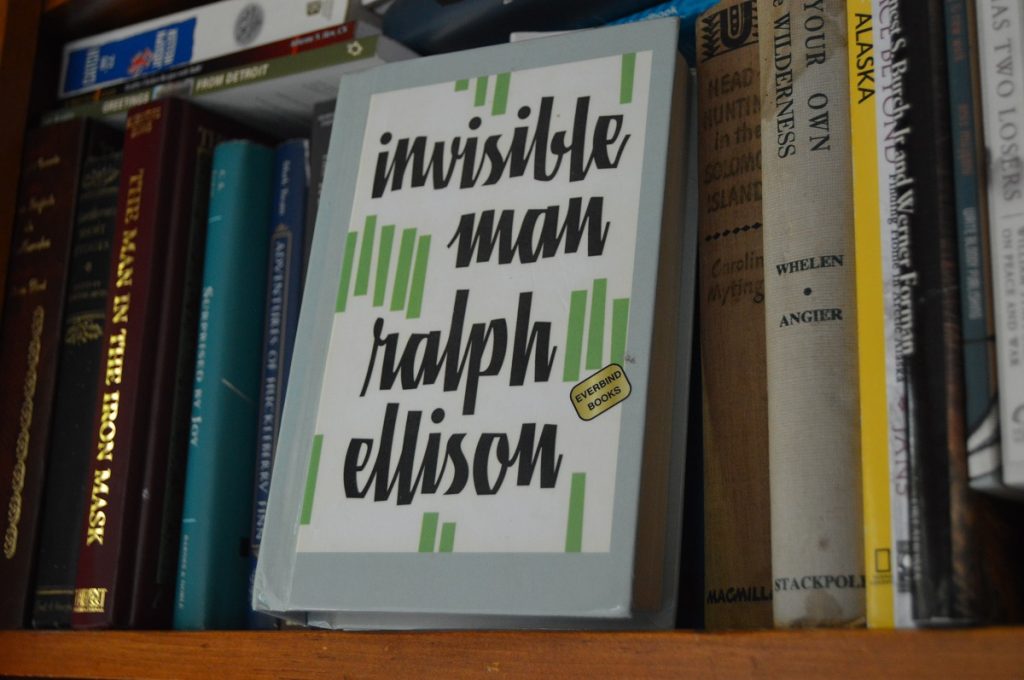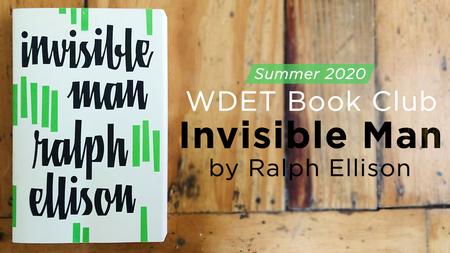Tense Political Culture Reveals Black Literature’s Role In White America
The recent killings in Kenosha, Wis., lay bare racial violence and inequities in society. Are publishers of fiction forcing those stories through a white lens?

WDET’s Book Club is back for a third year, and this summer’s selection is Ralph Ellison’s “Invisible Man,” a formative work of the 20th century and winner of the U.S. National Book Award for Fiction in 1953.
“Blackness exists because it’s a culture, but what does not exist are the mechanisms by which these things get codified and communicated outside our culture.” — Valerie Sweeney Prince, assistant professor
Detroit Today’s Stephen Henderson and readers are discussing the novel weekly on-air and online in the WDET Book Club Facebook community. The novel’s examination of power, systemic racism and inequality has never felt more urgent or pertinent than it does today.
Listen: Wayne State University Assistant Professor of African American Studies Valerie Prince on the role of Black literature
In this installment, Wayne State University assistant professor of African American Studies Valerie Sweeney Prince, author of “Burnin’ Down the House: Home in African American Literature,” discusses the role of African American literature from Ellison’s time to the present, and questions whether Black literature exists in a pure form considering the white lens of the publishing industry.

Discussion Points
- On the recent killings in Kenosha, Wis., Prince says the white lens impacts so many aspects of Black life, not just in literature. “When someone is tweeting ‘law and order,’ that is very clearly a frame of reference that allows a 17-year-old white kid with an assault weapon to not be seen as a murderer,” she says.
- When it comes to Black literature, Prince says the question is about who ultimately gets to determine what audiences read and internalize about Black life in America. “Blackness exists because it’s a culture. We have music, we have food, we have dance, we have all these things, a way of speaking, a way of just being and seeing and living in the world. But what does not exist are the mechanisms by which these things get codified and communicated outside our culture.”
- Prince points to a 2018 survey by Publishers Weekly in which 89 percent of respondents working in the publishing industry were Caucasian.
Keep the Conversation Going
Respond on Facebook to this week’s prompt about Chapter 9:
Does it resemble other organizations you are familiar with in your own experience?
Further Listening
Author Colson Whitehead on “The Nickel Boys,” “Invisible Man,” and Racial Inequity
“The Yellow House” Author Sarah Broom On Ritual, Home and Careful Placemaking
“White Rage” Author on Racial Justice and Ralph Ellison’s “Invisible Man”
NPR TV Critic Eric Deggans Talks Ebbs and Flows of Black Representation in Media
Trusted, accurate, up-to-date
WDET is here to keep you informed on essential information, news and resources related to COVID-19.
This is a stressful, insecure time for many. So it’s more important than ever for you, our listeners and readers, who are able to donate to keep supporting WDET’s mission. Please make a gift today.
